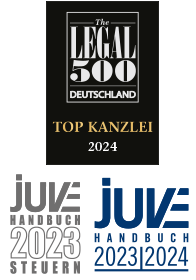European Investigation Order
The investigative measures in foreign countries by the investigative authorities have been reinforced. For this purpose, the EU legislative has issued the Directive for the European Investigation Order (EIO). This is an instrument, which allows the justice authority of a EU-member country (ordering country) to request another member country to conduct investigations in criminal tax proceedings or to furnish the results of an investigation.
1. Legal basis
On 27.2.2014, the European Parliament adopted the compromise wording negotiated with the European Council and the European Commission for the EIO (referred to as “Directive” in the following, compare with the consolidated wording of the decision by the EU Parliament dated 27.2.2014, file number: 09288/2010 – C7-0185/2010 – 2010/0817.
The Directive is not directly applicable German law. The German legislator is obligated to implement this Directive in national law. An exact timetable is not known yet.
2. Definition of the European Investigation Order (EIO) in Sec 1 of the Directive
Under Sec 1 of the Directive, the EIO is a judicial decision issued or validated by a judicial authority of a member country (ordering country) for the execution of one or more specific investigation measures in another member country (executing country) for the purpose of establishing evidence, as set out in the Directive (see point 5 below). An EIO may also be issued in respect of the procurement of evidence already in the possession of the executing country’s authorities.
The EIO-regulation is contradictory in respect of jurisdiction: It is ambiguous, why Sec 1 of the Directive mentions a “judicial” decision, while Sec 2 lit c of the Directive stipulates, that “ordering authority” suffices (which would be the public prosecutor or the StarBuSt/BuStra in Germany, compare Beyer in AO-StB 2014, 252).
3. Applicability in criminal tax proceedings?
It remains unclear for the time being, whether the offence of tax fraud falls within the scope of the EIO. It remains to be seen, whether a future German implementation law will even include tax fraud.
4. Prerequisites for an EIO
Under Art 6 Sec 1 of the Directive, certain prerequisites for the issuance and transmission of an EIO are prescribed, e.g. it must be necessary and reasonable both for the purpose of the proceedings and at the same time for the suspected or accused taxpayer, as set out in Art 4 of the Directive. It is unclear, if and to what extend the subject authority (of the executing country) is obligated to assess these prerequisites.
5. Legal protection under Art 14 of the Directive
Splitting: A splitting has been observed in jurisprudence: As set out in Art 14 Sec 2 of the Directive, the factual reasons for the issuance of an EIO can only be contested in the ordering country. The particulars pertaining to legal protection are not regulated, especially when a recognition and/or enforcement by the executing country is to be prevented.
6. Opinion:
The Directive has significant gaps, e.g. in the question of legal protection, which must be addressed by the German legislator (as far as this is possible on a national level). Because the legislator has no jurisdiction over other national legal systems, the closing of this gap should, in our opinion, be for the benefit of the accused and reinforce his rights. The legislator should determine, if the EIO also applies for the offence of tax fraud. Application in this area is, in our opinion, questionable. It remains to be seen, whether the authorities will use the EIO effectively and how defence attorneys will make use of the EIO for the benefit of their clients (compare Beyer AO-StB 2014, 252).
Cologne
An der Pauluskirche 3-5,
50677 Cologne,
Telephone: +49 221 39 09 770
Zurich
Tödistrasse 53,
CH-8027 Zurich,
Telephone: +41 44 212 3535
















